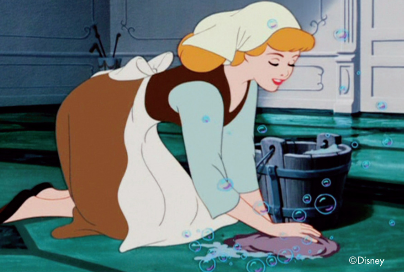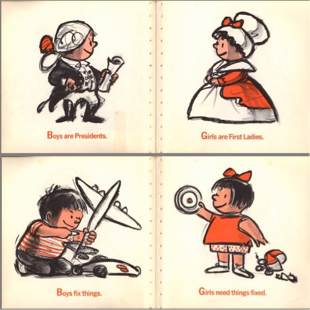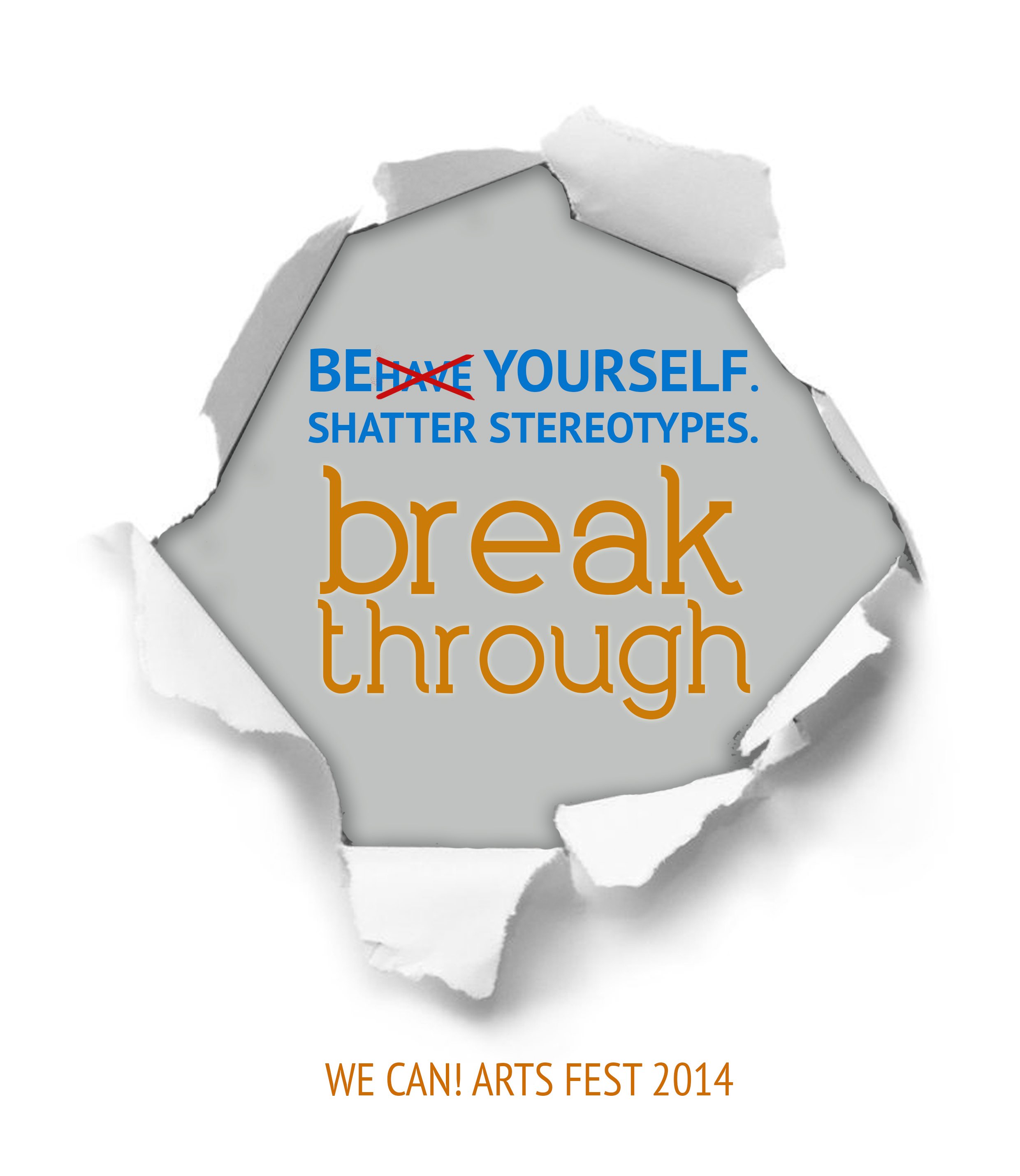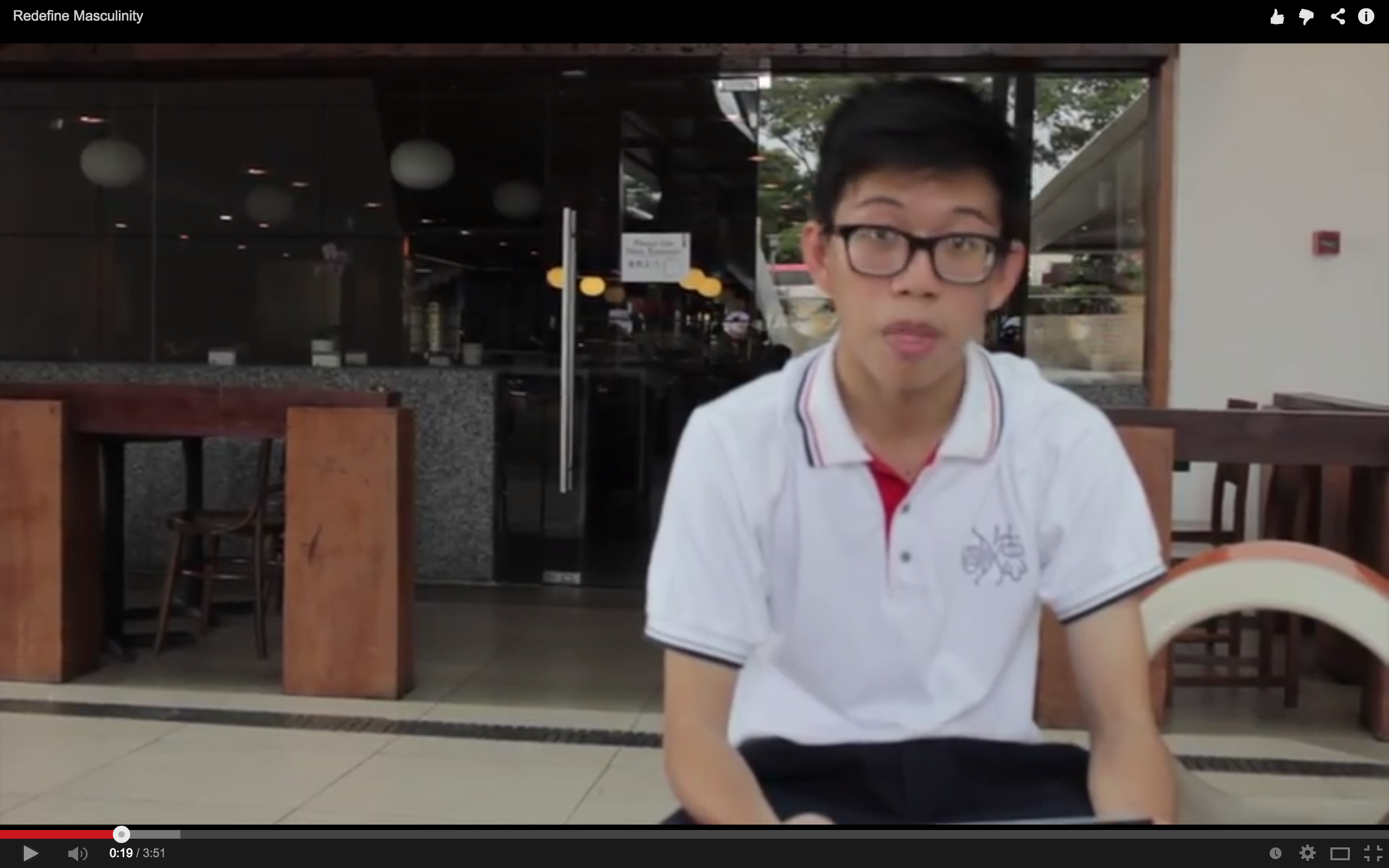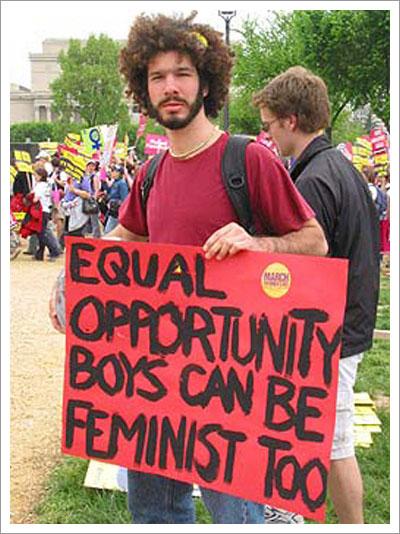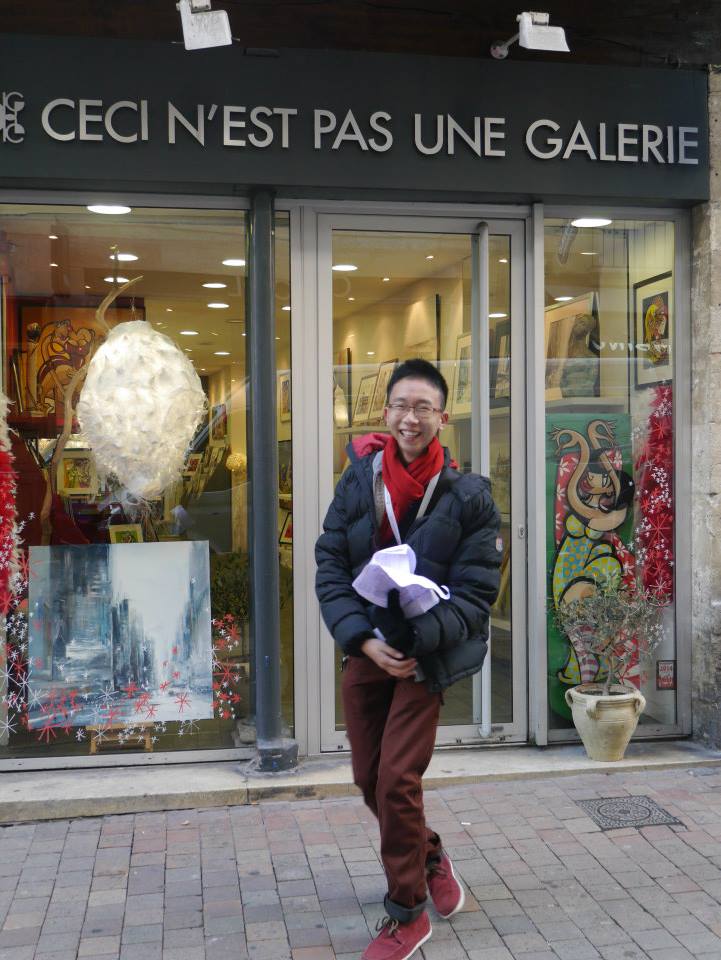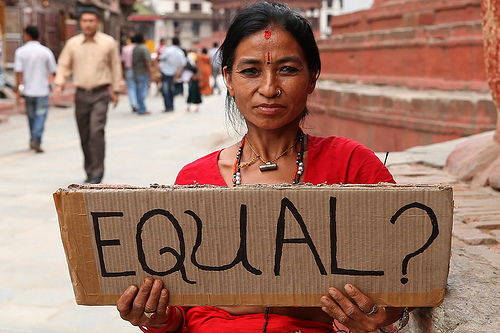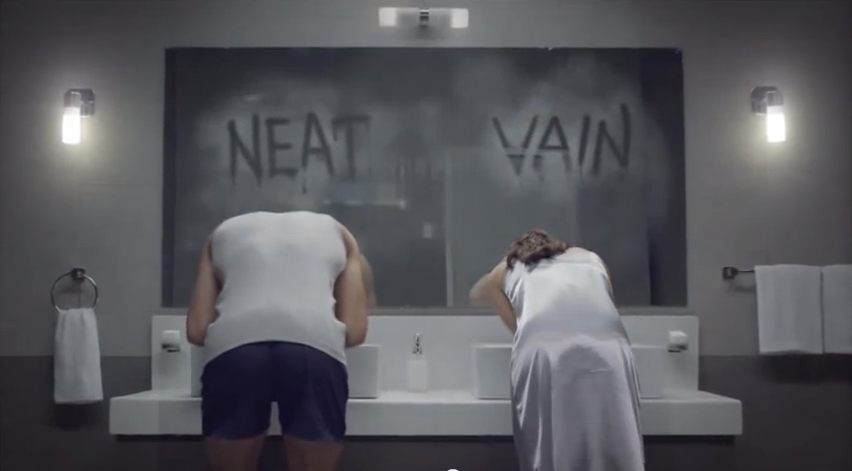by Change Maker, Foo Jun Kit
Recently, in history lessons, I came across “Poisonous Mushroom”, a propaganda book written by the Nazis to propagate anti-Semitism in German minds. It is targeted at children and taught them “the dangers of Jews” as well as encouraged discrimination against them. For the Nazis, this was a very powerful tool as the indoctrinated children would grow up to help the Nazis with their cause. This got me thinking about the role of books in our lives, especially books for children. Used right, it could educate children and spur the world forward; used wrongly, it could introduce problematic thoughts in young minds. I reflected on books I came across so far and my thoughts rested on a story I read ages ago – Cinderella. Even if the subtly reinforced gender stereotypes in this story may exist unintentionally, I felt it right to point them out.
1. Only women are responsible for household chores.
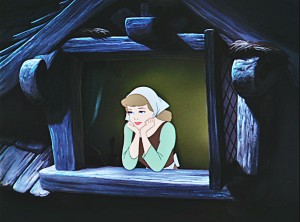 Cinderella is forbidden from attending the ball because she must finish all the household chores. She is forced to mop the floor, wipe tables and dust furniture instead. Oh, you say that a female character forced to do household chores is merely a coincidence? I say it was due to gender stereotypes the author internalised. Furthermore, the name “Cinderella” came from the word “cinders” because she spent most of what little rest time she had near the cinders of the fire.
Cinderella is forbidden from attending the ball because she must finish all the household chores. She is forced to mop the floor, wipe tables and dust furniture instead. Oh, you say that a female character forced to do household chores is merely a coincidence? I say it was due to gender stereotypes the author internalised. Furthermore, the name “Cinderella” came from the word “cinders” because she spent most of what little rest time she had near the cinders of the fire.
2. Women have to look good to be deemed worthy of a partner.
Cinderella is poor and dresses in shabby clothes, and it is made clear to the reader that she would be turned away if she went for the ball in this state. Only when a fairy godmother appears to grant her wish to be pretty, can she enter the ball. Why is there this need to sexually objectify females? Must they look a certain way to be accepted by others? Who are we to dictate what women wear?
3. Women should be subservient to men.
The Prince falls in love with Cinderella, but she runs away at the stroke of midnight. The only trace she leaves behind is her glass slipper on the steps of the entrance. Naturally, the Prince decrees that all women in the country must try on the glass slipper until a perfect match be found. Meanwhile, Cinderella waits helplessly at home for her Prince to come and get her. Portraying women to be submissive to men and their desires robs them of their sense of agency.
These three gender stereotypes from children stories are just the tip of the iceberg. Impressionable children would accept such stereotypes without much consideration, without realizing that they could be damaging. Without sensible reflection of these internalised ideas introduced to them when they were young, these stereotypes would remain with them as they grow older. To avoid this undesirable situation, I present to you the story of Ella, a woman living in a world of responsible people.
Once upon a time, there lived a girl named Ella. Her parents passed away when she was 10, and she lived with her grandparents. Her grandparents were very kind towards her and made sure she lived comfortably. When Ella graduated, she started working at a car repair workshop to earn a living. They all lived very happily.
On the day the Prince turned 21, he held a ball and invited all the girls in the country. Ella was thrilled at the prospect of meeting the Prince and decided to go for the ball. Upon hearing this, her grandparents were very excited as well. Ella’s grandma sewed her a gown and her grandpa gave her a pair of earrings. Ella was absolutely delighted and could not thank her grandparents enough! Off she went with a skip in her step towards the castle.
The majestic castle was enormous! It looked big enough for elephants to hold five soccer matches in it! Ella entered the ballroom and caught her breath; it was beautiful. Chandeliers hung from the ceiling, bouquets of fresh flowers stood everywhere, even the walls were painted with a fresh coat of gold paint. There were people dancing on the floor, musicians playing in a band and magicians pulling rabbits out of hats. Ella headed for the large buffet and took her fill, but not before saying hi to the Prince.
The Prince immediately fell in love with Ella and danced with her for the rest of the night. Both Ella and the Prince had a great time. Before Ella left, the Prince asked for her address, but Ella refused to disclose that information and left the castle. Furious and desperate to find her, the Prince commanded his soldiers to bring Ella to him.
The next day, Ella peered out of her room window and saw soldiers marching down her street. She realised what was happening and burst into tears. She did not want to belong to the Prince.
All of a sudden, there was a clap of thunder and a streak of bright light, and a plump lady appeared in her room. Ella looked up and asked,
“Who are you?”
“Why, I am your fairy godmother, and I am here to help!”
“Oh fairy godmother, I am scared to death. The Prince is here to bring me back to the castle!”
“But Ella, isn’t that the most fortunate thing?”
“Oh no, fairy godmother, he may be the Prince, but I do not like him!”
“Oh dear, then I must offer you my assistance. Would you like me to keep him and his soldiers away from you?”
“Yes please, fairy godmother, I will be so glad if you do so!”
With another clap of thunder and streak of bright light, her fairy godmother was gone. Ella looked out of the window and saw that the street was empty. There were no soldiers in sight! Just then, she noticed a note on her bed, which read:
A magical sphere has been established around you, and the Prince and his soldiers cannot enter this sphere without your permission.
Ella knew then that she was free from the Prince, and lay on her bed in relief. She returned to work at the car workshop and continued living her happy and carefree life with her grandparents.
The End.
And that was the story of Ella. If you ever find yourself in the position of the Prince, be careful not to abuse your privilege to take advantage of others. Instead, you can be a fairy godmother to others and take a stand against violence against women! Empower women with options and respect their choices. Help build a better world for women to live in.
